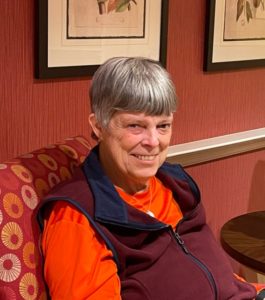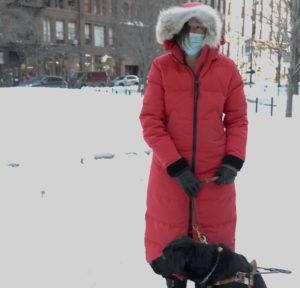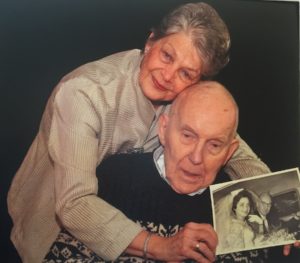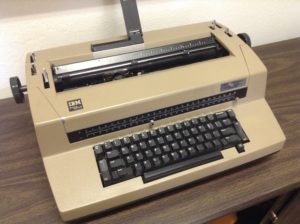Saturdays with Seniors: Jody in Jail
February 13, 2021 • 12 Comments • Posted in careers/jobs for people who are blind, guest blog, memoir writing, writing promptsI am pleased to introduce Dr. Jody Ashenhurst as our Saturdays with Seniors guest blogger today. Dr. Ashenhurst grew up in Chicago’s Hyde Park neighborhood and attended medical school at University of Illinois at Chicago. She trained in Internal Medicine at Chicago’s Cook County Hospital under renowned physician Dr. Quentin Young and credits him for teaching her as much about social activism as medicine. “Along the way I created some ‘good trouble’ myself,” she says with a smile. “Including helping organize a doctors’ union at Oak Forest Hospital.” After years of practicing Hematology/Oncology in various teaching hospitals in the Chicago area, Dr. Ashenhurst retired in 2017. She joined the memoir class I lead at The Admiral at the Lake in 2020 and generously agreed to let me share this essay with you — with the Senate Impeachment Trial going on this week, I assigned “Guilty” as a writing prompt.
Guilty
by Jody Ashenhurst, M.D.
I spent my internship and residency at Cook County Hospital and that required me to spend 3 separate months at the Cook County Jail. I was assigned to the Medicine ward at Cermak Memorial Hospital, the Jail’s small hospital.
Only a small proportion of the prisoners were serving sentences, and most of those sentences were under a year. The rest of the inmates at the Jail were awaiting trial. To see whether a prisoner was oriented to time and place, we would ask two questions: “When is your court date?” and “How much is your bond?” I never asked what a patient’s crime was. I knew that these men were not guilty, but they weren’t “not guilty,” either.
We met every morning to discuss problems that had arisen the day before, and then again at lunch. The food in the cafeteria was so horrible that Cook County Hospital sent over sandwiches of “mystery meat” for us. We were not sure whether we or the prisoners and employees had worse food for lunch.
My first day on the ward found me working alone, since my resident was in clinic back at the County. I went around the ward introducing myself and asking how my patients were feeling. As I was finishing up, I came across a burly, unshaven and bedraggled white man who looked up at me and said, “How would you feel if you found out you had killed your mother?” I learned that the Medicine ward occasionally took in some Psychiatry patients when their ward was full.
The nurses taught us to distinguish real from fake seizures. The radiologist only came for a couple of hours every morning but he taught us to read X-rays of facial bones so we could detect orbital fractures after fistfights. If there was something we couldn’t handle, such as chest pain, we could send the patient to County, but we had limited resources. Each prisoner at County was guarded by a sheriff’s police officer, which meant that the County Jail provided three officers for each prisoner, one per shift. There were a limited number of sheriff’s police available. We took great pride in sending very few patients to County, managing them in our jail hospital with limited resources: laboratory tests were unavailable after 7 pm and X-rays were unavailable after 11 pm, like in a small, very rural and unsophisticated hospital.
Because life on the ward was infinitely preferable to that in the tiers, the psychiatry patients found creative ways to get admitted to our little hospital. They seemed to know when a fresh batch of interns arrived to work at the Jail.
One guy was admitted for depression after his mother died. In fact, his mother died every month. Another fellow would be brought to the infirmary wearing tinted wire frame glasses while chewing on a broken light bulb. Crunch, crunch. The first time we panicked and admitted him to the hospital. After that we developed a routine: we had him rinse the broken glass out of his mouth and then subjected him to a very rough rectal examination. He would then be sent back to the tiers.
Were we a little bit sadistic with the rough rectal exam? Guilty as charged.




